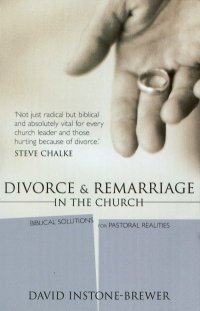

|
Emails
Divorce and Remarriage | ||

|
I read and reply to all emails though sometimes the reply is very brief, due to pressure of time. I like to get questions - especially if they are new. Many people ask questions which are already covered in these Questions & Replies. Please take a moment to look at previous emails before you write. Pastoral support
doesn't really work by email, so if you need this, I'd
encourage you to find a local fellow Christian or minister.
Their personal views on this subject don't matter too much if they
are good at listening, both to you and to God. David Instone-Brewer |

|
Version
-for ministers
-for academics
Summary
Reviews